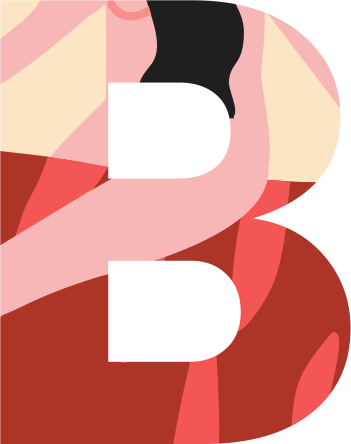
Boreal Light: revolutionising water access in off-grid communities
Revolutionising water desalination in developing countries: solar powered WaterKiosks sustainably transform rural communities
Boreal Light GmbH is a young Berlin based company specialised on renewable energy solutions for water treatment facilities. The company designs and manufactures affordable solar water desalination systems for off-grid communities around the globe. The fully solar powered and affordable products of Boreal Light deliver high quality hygiene drinking, irrigation, fish farm, and sanitation water from any kind of high saline and polluted water resources. In the past Boreal Light won i.a. the UAE Water Award 2020, Nudge Encouragement Prize 2019, and KfW Award Gründen 2019.
Econogy’s Research Leader for Germany and West Africa, Charlotte Kürsten, met Dr. Hamed Beheshti, co-founder and CEO of Boreal Light GmbH.
Which products do you design and what is the business model?
We design and manufacture a water desalination system that runs directly on solar energy with no need of battery bank or pressure storage. It offers simultaneously four different qualities of water: drinking, irrigation, fish farm and, sanitation water. This is what we call an integrated approach.
On the one hand we sell these systems to other businesses. This B2B model accounts for about 60% of our revenue. On the other hand, we also provide the service to run the so called WaterKiosk in the communities all over East Africa. Selling the water to the very end clients (B2C) is our main competence and brings the technology that fits the need and is sustainable to the consumer. Boreal Light’s WaterKiosk business is a social business, that means that the revenue is investing on its own.
What is revolutionary about your business idea?
Boreal Light designs machines that run on solar energy. This transforms rural communities that suffer from lack of electricity because it is not affordable for them or they are simply not connected to the grid. Besides the simplicity, the advantage of this off-grid solution is that water production is very cheap: producing 1,000 litres of water costs 0.50€. In comparison, the average hygiene water bottle (20l) in East Africa sells for 4$. Our solutions provide from 1,000 litres to up to 20,000 litres of hygiene drinking water per hour. The water desalination system removes 99% total dissolved solids from the intake contaminated resources and delivers drinking water free from any organic and inorganic contamination, bacteria, and viruses.
The success of renewable energy for me does not mean to build a big power plant, it is about the small achievements that make life in off-grid communities better. Having an integrated drinking water, irrigation water and electricity supply solution for farmers and villagers around the globe is key to increase their resilience against the growing climate change impacts.
Where did the idea for this start-up came from?
Through my experience with my solar backup systems projects in rural parts of the world I realised that the need for water when electricity is absent is a game changer for rural communities. We first designed a solar water pump, but Boreal Light was born when we merged the solar water pump and a desalination system into one product.
Let’s imagine I live in an off-grid community struggling with its supply of water and electricity and we would like to have a WaterKiosk. How could we realise this?
The first step is to connect with one of our local teams. Or the team comes across a good place to set up a WaterKiosk and encourages the community for the next steps. The tricky bit is the financing. We get loans for places that are commercially well located. Like this it is likely that the loan can be paid back in time. For places such as rural communities where this is not the case, we contact donors that financially support the installation of a WaterKiosk.
Do you collaborate with local partners such as ministries, communities, or business partners?
No, we do not work with political institutions. We rely on private-private relationships because it allows maximal independence and flexibility for our partners and us.
We collaborate with Atmosfair GmbH, a climate protection organisation that supports projects that offset greenhouse gases through renewable energies. We get the donations that they collect as a loan with a low interest rate. After eight years we pay the loan back. This helps our business to expand into new markets without government intervention.
Due to Covid-19, is there an increased demand for your products?
Yes, we can observe that people get even more cautious about the water they are drinking. Also, the demand for washing water increased. We just started a new project with the major hospitals in Kenya. Through the support of the program develoPPP by the German Development Agency (GIZ) we equip three key hospitals in Mombasa with our machine. The German Ministry for Economic Cooperation and Development has chosen Boreal Light as the special project for extension due to the impact of our products during the Covid-19 pandemic. Thanks to this extension, develoPPP and German Investment and Development Company (DEG) co-finance the equipment of another series of hospitals in East Africa with our product. This provides drinking water for the entire hospital. Before there was no access to drinking water inside of the hospital. In addition, the water that comes out of Covid-19 station is cleaned before going back into nature.
Did Covid-19 impact your business?
Yes definitely. We could not realise trips to Africa between February and October 2020. However, the pandemic helped the local teams to become more independent from our base in Germany. We set up a big stock in Nairobi for the entire East African region because sending containers was very difficult at the time. The local teams also managed to get more clients on board because delivery times have shortened. Also, our team in Kenia has tripled.
A personal question at the end: What do you like best about your work?
I always visit the host before and after the installation of the WaterKiosk. The transformation after the implementation of the WaterKiosk is fascinating every time. I love to see the impact we have on the villages with our invention. I am often called the “Waterman”, I like that.
Besides, my two little children have already understood the social and economic added value of water treatment and draw many pictures about me and bringing water to other people. My work is a part of their life as I take them with me to Africa sometimes which seems to be an inspiration for them. I go to their school and kindergarten once a year to tell the kids about my work and its impact.
By Charlotte Kürsten, Research Leader for Germany and West Africa with focus on renewable energies and sustainable banking.





Leave a Reply